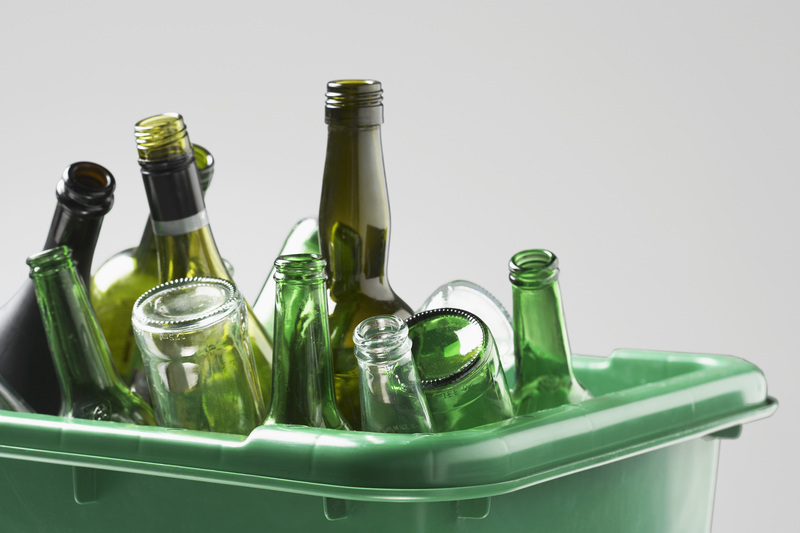Enlightening Quick Facts About Glass Recycling
Recycling is an integral part of sustainable living, and glass recycling is no exception. This article explores some quick facts about the process of recycling glass, its benefits, and how everyone can contribute to a more eco-friendly planet.
The Fundamentals of Glass Recycling
Glass recycling is the process of converting waste glass into reusable products. Glass can be recycled endlessly without loss in quality or purity, making it an ideal material for long-term sustainability. Let's delve deeper into the glass recycling process and understand its significance.
How Glass Recycling Works
- Collection: Waste glass is collected from households, businesses, and recycling centers.
- Sorting: The glass is sorted by color and type to maintain quality during the recycling process.
- Cleaning: Any impurities, such as labels or residue, are removed from the glass.
- Crushing: The sorted glass is crushed into small pieces known as cullet.
- Melting: Cullet is melted in a furnace and molded into new glass products.
The entire process significantly reduces the amount of energy required to produce new glass from raw materials.

Benefits of Recycling Glass
_Understanding the importance of glass recycling_ is essential for nurturing a sustainable environment. Here are some key benefits:
Environmental Impact
- Reduction in Raw Material Usage: Recycling glass reduces the demand for raw materials, such as sand, soda ash, and limestone, thereby conserving natural resources.
- Energy Conservation: Using cullet instead of raw materials reduces the energy required for glass production by about 30%.
- Decrease in Landfill Use: Recycled glass reduces the volume of waste that ends up in landfills, helping to extend landfill life.
Economic Advantages
- Cost-Effectiveness: Recycling glass can be less expensive than manufacturing it from raw materials, contributing to lower production costs for glass manufacturers.
- Job Creation: The recycling industry creates numerous jobs in various sectors, from collection and processing to manufacturing.
Common Myths and Facts About Glass Recycling
Despite its benefits, there are common misconceptions surrounding glass recycling. Let's address and debunk some of these myths.
Myth: Colored Glass Cannot Be Recycled
Fact: All colored glass is recyclable. However, it is sorted by color because the color of glass is permanent, and mixing different colors can result in an unattractive product.
Myth: Broken Glass is Non-Recyclable
Fact: Broken glass is still recyclable as long as it is sorted and free of contaminants. Cullet is made from crushed glass, which can include broken pieces.
Myth: Recycling Glass is Energy-Intensive
Fact: The energy savings from recycling glass outweigh the energy used in the recycling process. Utilizing cullet instead of raw materials requires significantly less energy.
Global Glass Recycling Rates
Different countries exhibit varying levels of efficiency in glass recycling. European nations lead the way with high recycling rates, thanks to stringent regulations and public awareness campaigns. In contrast, some regions are still improving their recycling capabilities. Let's take a closer look at a few examples:
- Europe: Countries like Germany and Sweden boast recycling rates of over 90%, setting a standard for glass recycling worldwide.
- United States: While the U.S. recycling rate for glass is around 33%, there is potential for improvement with increasing public awareness and better recycling infrastructure.
- Asia: Countries like Japan have made significant strides, with aggressive recycling policies leading to higher rates compared to a few decades ago.

How Can You Contribute?
Each individual has the power to make a difference in the recycling effort. Here are some simple yet effective ways you can contribute to the glass recycling initiative:
Stay Informed
- Learn about your local recycling regulations. Different regions may have specific guidelines on how to prepare glass for recycling.
- Educate yourself on the benefits of recycling and share this information with others.
Make Recycling a Habit
- Separate your glass waste correctly at home, ensuring all bottles and jars are clean before disposing of them.
- Utilize designated recycling bins provided by community services or take your glass waste directly to a recycling center.
Advocate for Supportive Policies
- Encourage local authorities to enhance recycling programs through investment in infrastructure and public education.
- Support policies favoring the growth of industries using recycled materials.
Conclusion
Glass recycling is a pivotal component of a sustainable future. By understanding the process, benefits, and ways to contribute, individuals can actively participate in reducing environmental impact and conserving natural resources. As global citizens, embracing recycling not only helps the planet but also promotes a healthier and more sustainable lifestyle for generations to come.
Remember, every bottle counts. Let's ensure they count for the environment too!